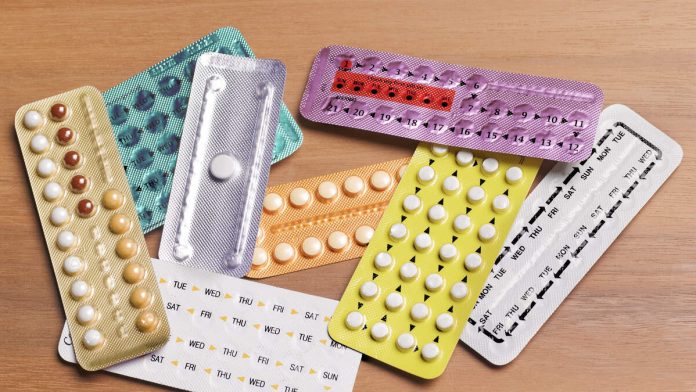LOS ANGELES (CNS) – Women living in states with the most restrictive abortion policies after the Supreme Court’s reversal of Roe v. Wade experienced steep declines in the use of birth control pills and emergency contraceptives, according to a USC study released Wednesday.
The findings, which appear in the medical journal JAMA Network Open, suggest that the Dobbs v. Jackson Women’s Health Organization case had even wider impact for women’s reproductive health than previously thought, the authors said.
According to the study, states that implemented a full ban on abortion after the ruling saw significant declines in the number of prescriptions filled for birth control pills and emergency contraceptives at pharmacies.
These reductions weren’t found in states whose policies were unchanged after the Dobbs decision, according to the findings.
The study said many family planning clinics with abortion services closed immediately after the Roe reversal, particularly in the most restrictive states.
“Because 11% of women rely on such clinics for the provision of prescriptions for contraceptives — many of which are filled at outside pharmacies — these closures may have reduced access to oral and emergency contraceptives,” Dima Qato, associate professor at the USC Alfred E. Mann School of Pharmacy and Pharmaceutical Sciences of USC, said in a statement.
The Supreme Court decision may also have contributed to declines in the use of emergency contraceptives due to misunderstandings about their legality, according to the study. A January 2023 survey by the Kaiser Family Foundation found that half of women in full-ban states believed Plan B was illegal in their state.
During the time period analyzed, March 2021 and October 2023, 142.8 million prescriptions for oral contraceptive pills and 904,269 prescriptions for emergency contraceptives were dispensed at retail pharmacies, researchers said.
Before Roe’s reversal, trends in monthly prescription rates for oral and emergency contraception were similar between the most restrictive and least restrictive states. However, while the case was being reviewed, more highly restrictive states saw a spike in emergency contraceptive prescriptions.
After the decision, the researchers found that states becoming the most restrictive experienced a 24% total decline in oral contraceptive prescriptions filled. Prescriptions for emergency contraceptives declined by 65% in the most restrictive states compared to less restrictive ones, according to the study.
“In states such as Texas and Mississippi where women now don’t even have the option to have an abortion, their access to contraception is also becoming more difficult,” Qato said. “More efforts to improve and protect access to oral contraceptives are needed, especially for emergency contraceptives in states where abortion is no longer an option.”
Researchers noted that emergency contraceptive fills post-Dobbs increased the most in Idaho, which, among states with the most restrictive abortion policies, is the only one that allows pharmacists to prescribe emergency contraceptives to women without any age restrictions.
“We saw the greatest declines in birth control pills and emergency contraceptives in states that had closed a larger share of their family planning clinics,” said Rebecca Myerson, an assistant professor at UW Madison who worked on the study.

Recent Comments